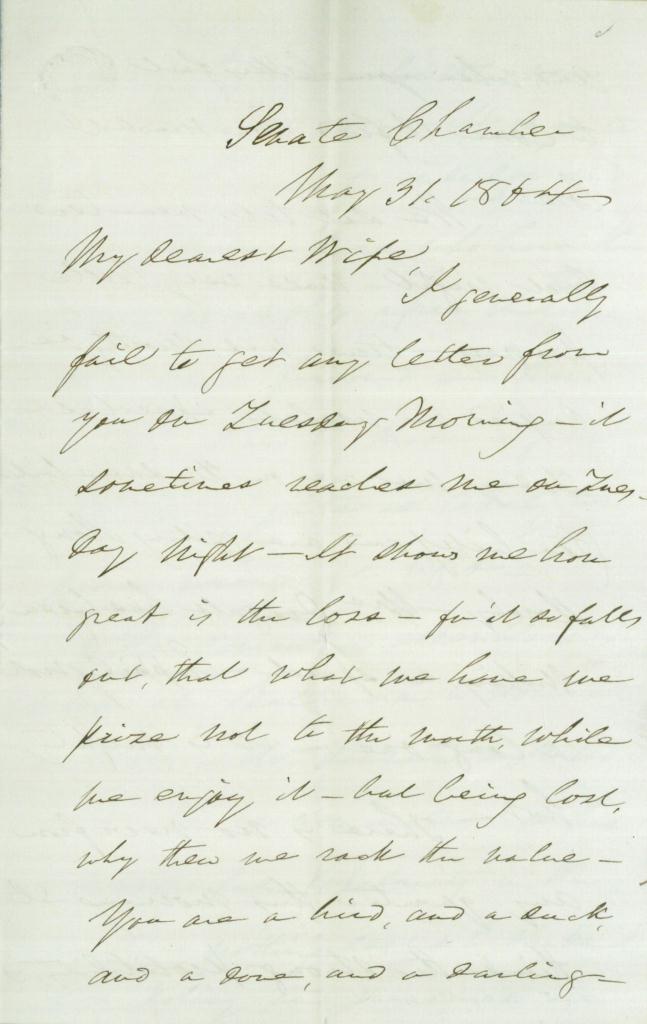By Elaine Grublin
Each month I have the pleasure of delving into our rich Civil War era collections seeking just one document to showcase in our “Massachusetts Finds Her Voice” web feature. It is one of my great pleasures, sitting in the reading room working through page after page of correspondence and diaries, written exactly 150 years ago, that capture the essence of how people from Massachusetts experienced the war. Each time I sit down I hope to find a document that represents the particular aspect of the war experience I hope to highlight in a coming month.
Typically, I limit myself to searching the collections of persons from Massachusetts, as the scope of the project only allows for featuring documents authored by men and women from Massachusetts. But earlier this spring, I found myself reading the Lafayette S. Foster Papers. Foster was a lifelong resident of Connecticut. He represented that state in the US Senate from 1855-1867. I turned to this collection hoping Foster may have received letters from members of the Massachusetts congressional delegation. I dreamed of finding something referencing the ongoing debate surrounding the 13th Amendment. I struck out along that line, but a letter Foster had written to his wife grabbed my attention.
I knew that this letter could not be used in the Civil War feature, but as my eyes fell on the final line of the first page, where Foster states “you are a bird, and a duck, and a dove, and a darling,” I simply could not resist reading the letter in its entirety.
Writing to his “dearest Wife” from the Senate Chamber on Tuesday, 31 May 1864, Foster opens the letter with the lament:
I generally fail to get any letter from you on Tuesday morning – it sometimes reaches me on Tuesday night – It shows me how great is the loss – for it so falls out, that what we have we prize not to the worth, while we enjoy it – but being lost, why then we rack the value – You are a bird, and a duck, and a dove, and a darling, and when your letters fail to come I find how much I lose.
The letter continues on to discuss the progress on a tax bill (slow), the progress of the war (unpredictable), and the prospects for the Republican nominating convention in Baltimore the following month (Lincoln all the way!).
Being a true reference librarian, I simply had to see what I could discover about the woman who inspired such Audubonian comparison. Referred to as both Mittie and Mattie in Foster’s letters, Martha Lyman was Foster’s second wife. His first wife, Joanna, died in 1859 after 22 years of marriage. Foster and Lyman wed in October 1860, and made their home in Norwich, Connecticut. But it thrilled me to learn that there was a genuine Massachusetts connection in the letters. Martha Lyman – the bird, duck, and dove, of Foster’s musings – had been born in Northampton, Massachusetts in 1823. Perhaps I shall go back to the Foster collection and examine Martha’s letters, to determine if any of those missives, written by a Massachusetts native, make a likely candidate to be featured in Massachusetts Finds Her Voice in a future month.


